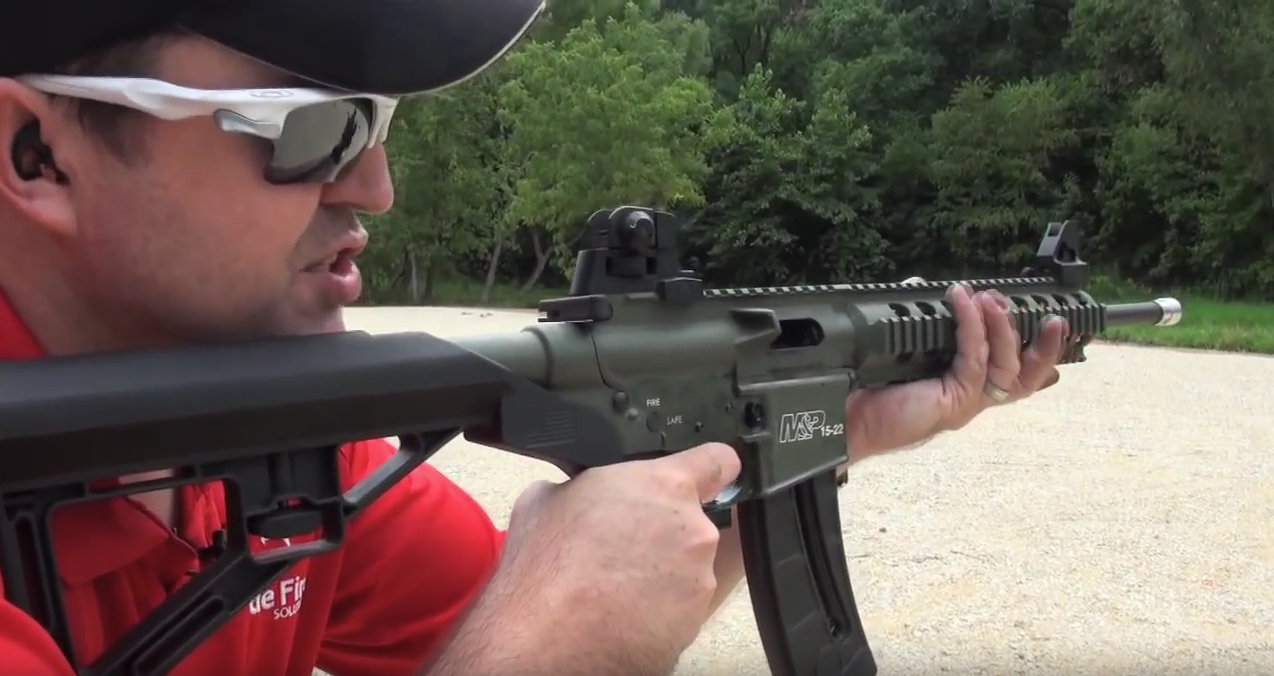Jeremiah Cottle said he made the first-ever bump stock in about two hours from a piece of wood and some metal.
The retired Air Force veteran had come home to his Central Texas farm to recover from a brain injury he received in the military, and he was looking for a way to pass the time, according to a 2011 news report.
“A friend and I were out shooting one day and we weren’t able to fire as fast as we wanted. We couldn’t afford what we wanted – a fully automatic rifle – so I started to think about how I could make something that would work and be affordable,” Cottle told The Albany News, a small, weekly newspaper in Texas.
Until this week, the accessory Cottle says he invented to help people fire their semiautomatic rifles more rapidly was little-known outside the gun world — and even among firearm enthusiasts, it had a reputation as a niche product that doesn’t serve much practical purpose. But then 12 bump stocks were found attached to semiautomatic rifles in the Las Vegas hotel room of the deadliest mass shooter in American history.
A bump-fire stock is a device that harnesses the recoil of a semiautomatic firearm to allow a shooter to fire shots in quick succession, mimicking automatic gunfire.
An analysis by the New York Times of the sound of the gunfire, along with videos taken by eyewitnesses, indicate that the shooter was achieving rates of automatic-rifle fire.
Fully automatic rifles are heavily regulated and can cost thousands of dollars to acquire. Bump stocks, which are manufactured by Slide Fire Solutions Inc. and at least one other company, retail for about $100. The Bureau of Alcohol, Tobacco, Firearms and Explosives has determined that the devices aren’t subject to regulation, and as a result, there are few restrictions on who can buy or sell the devices.
Cottle is the president of the company, which is based in the town of Moran, according to tax documents provided by the Texas State Comptroller.
Authorities have not said whether Slide Fire Solutions Inc. made any of the devices found in the hotel room of the shooter, Stephen Paddock. But it is the leading seller of the devices. Until this week, Slide Fire bump stocks were sold by Walmart and Cabela’s. On Wednesday, the retailers appeared to pull them from their online stores.
Also on Wednesday, Senator Dianne Feinstein, a California Democrat, introduced a bill that would ban the sale and possession of bump-stock equipment and other devices that work to turn semiautomatic firearms into automatic ones.
Cottle and his wife, Lora, who in 2011 was vice president of the company, according to The Albany Times, could not be reached for comment.
In 2016, after the Orlando nightclub massacre, Cottle was interviewed by the shooting-sports website Ammoland. Asked whether his product violates the intent of the federal law that bans most sales of automatic rifles, Cottle said no.
“With Slide Fire you still have to pull the trigger each time it fires. The Slide Fire stock does not change the mechanics of the firearm, it simply enables the shooter to pull the trigger very rapidly,” he said.
He added that banning bump stocks would be like banning the trigger finger of the fastest shooter in the world.
“Should we ban Jerry Miculek’s trigger finger because he can fire six shots from a revolver, reload and fire six more shots in less than three seconds?” Cottle asked.
Although experts agree that the bump stock does not turn a semiautomatic rifle into a fully automatic one by the letter of the law, some say it has the same effect because it increases the speed at which the shooter can discharge rounds so dramatically.
The Albany Times said Cottle’s business took off quickly, with sales exceeding $10 million in its first year. In 2011, the operation moved from a collection of portable buildings into a new 22,000-square-foot metal building and the company was building a residential compound for employees who needed housing.
Slide Fire has sued several other companies, including Bump Fire Systems, 2nd Am Arms and Bair Arms, for patent infringement over the last several years. Most cases were settled, with the defendant agreeing to “cease and desist” making bump-stock products.
Lawyers in those cases could not immediately be reached for comment.
Slide Fire also settled a case brought by three of Lori Cottle’s cousins in 2012. They claimed they were defamed, falsely promised bonuses and denied wages. One of them said he was promised a $4,500 Valkyrie Arms belt-fed AR-15 in exchange for work he did on behalf of the company, but never got the weapon. An attorney for Cottle’s cousins could not be reached Wednesday.

